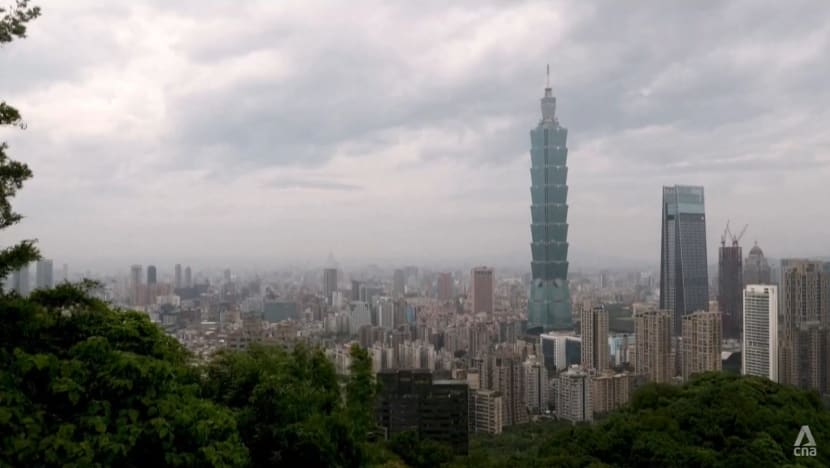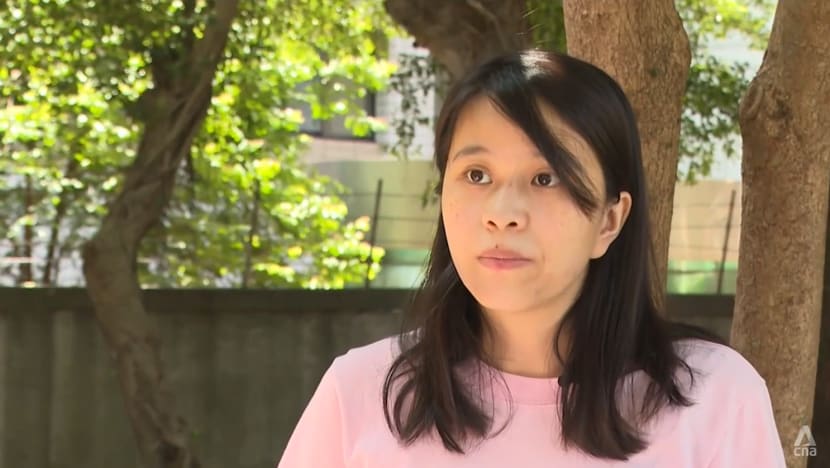As #MeToo movement sweeps through Taiwan, more women come forward with sexual harassment complaints
The movement is said to have been sparked by the Netflix show Wave Makers, which featured a scene where a young female aide reveals to her mentor that she had been sexually harassed by a male colleague.

Taiwan is seen as one of the most progressive democracies in Asia, but the recent spate of #MeToo cases show that gender inequality remains a problem, according to activists.
TAIPEI: Taiwan’s #MeToo movement has recently taken the island by storm, after sweeping through politics and academia to the entertainment world.
The legislature is now looking to amend the law to provide more protection to victims.
The movement is said to have been sparked by the Netflix show Wave Makers, which featured a scene where a young female aide reveals to her mentor that she had been sexually harassed by a male colleague.
It has prompted victims in Taiwan to come forward and speak about their sexual harassment experiences.
Leading women's rights group Garden of Eden Foundation told CNA it has seen a 10-fold increase in sexual harassment complaints since the movement started.
A Labour Ministry survey showed that before that, as many as 80 per cent of those who experienced such workplace harassment chose not to file a complaint.
“Many victims didn’t dare to come forward because they were afraid of retribution or the perpetrator is a man with social stature, so their complaints would be questioned,” said Ms Wang Yue-Hao, executive director of Garden of Eden Foundation.
“Some are afraid they would face defamation lawsuits because they don’t have evidence to prove it.”
CHANGING ATTITUDES
One such victim, interpreter Jenny Chang, was having a work discussion with her male colleague in March this year, when he suddenly brushed through her hair intimately.

“Nobody was around and I wasn’t sure there was a surveillance camera. If I spoke out, nobody would believe me,” the 31-year-old told CNA.
Shocked, she ran away immediately, but decided not to file a complaint and kept silent, fearing it might cost her her job.
Ms Chang told CNA: “If nobody believed me, they might not want to hire me as an interpreter because they think I would only cause trouble.”
She has tried to avoid the man since the incident, such as not making any eye contact with him.
With the recent #MeToo movement sweeping across Taiwanese society, Ms Chang said attitudes have changed.
“If you speak up now, more people will believe you. So that encourages more victims to come forward and talk about their experience,” she said.
The movement started in Taiwan in May this year, after a female staffer from the ruling Democratic Progressive Party (DPP) disclosed on social media how her supervisor rebuffed her sexual harassment complaint.
Her post quickly went viral, forcing the supervisor to resign, and Taiwanese vice-president William Lai to make a public apology subsequently.
Soon, the movement spread more widely across Taiwanese society, involving professors, doctors and celebrities, with some quitting their jobs.
AMENDING THE LAW TO PROTECT VICTIMS
Taiwan is seen as one of the most progressive democracies in Asia, but the recent spate of #MeToo cases show that gender inequality remains a problem, according to activists.
The ongoing movement has now prompted legislators across the aisle to push for an amendment to the Act of Gender Equality in Employment.
DPP lawmaker Fan Yun told CNA: “The #MeToo movement has made us realise that the current law is ineffective and there are many loopholes, especially in regard to the appealing process, which made many people lose faith in the system.”
Further discussions on the proposed updates to the law will take place in the legislature later this month.
For now, Taiwanese society is slowly shifting away from a culture prone to victim-blaming.
Ms Wang said: “After the movement, victims realise ‘It’s not just me, but there are so many others’. This helps break the silence and isolation, forcing Taiwan’s society to take sexual harassment more seriously and encouraging more victims to come forward.”

















